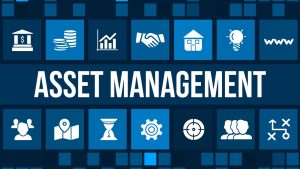A property manager can be anyone managing one house, a couple of houses or an entire building filled with commercial residences. The more properties that are being managed, the more reason a property manager needs to implement a property management system. A property management system is a two-way street. On the one hand, it helps the manager collect, organise and efficiently carry out in-house operations. It is also a great way to automate repetitive tasks and let the rest of the team focus on more critical requirements.
On the other hand, it makes the tenant’s life much easier. From streamlining enquiries to receiving reminders, paying the rent online, and receiving acknowledgements instantly, both parties benefit from such a system. If you are a property manager just starting and wondering whether such software is needed, a common question is what sort of property such software systems manage. Does it have to be an apartment complex, or is it software complementary to other buildings? This article will list the type of properties that a property management system can manage.
Get a Property Management System if You Manage Any One of the Below Types of Properties
There are so many types of properties in the market. Whether in the real estate or hospitality sector, managing multiple properties is not humanely possible for one person. Either the person will have to invest in a larger team or can choose the cost-effective option of having a small team with one person managing the property management system. The types of responsibilities the property manager is in charge of will also differ according to the property type. At the same time, however, all property managers have specific responsibilities that stay the same regardless of the type of property managed. This includes aspects such as handling legal documents, collecting rent and more. Here are four types of properties a property management system is typically used for.
Residential Apartment Complexes
A residential apartment complex is the most common type of property managed by a property management system. As these complexes include multiple homes for families that may also have small children, the property manager has a higher burden to ensure security is provided. Such buildings, therefore, embrace the concept of a “gated community” whereby the property manager must give protection to its tenants. This could mean having a guard house with security personnel and implementing CCTV monitoring 24/7. The rent fee generally includes the cost of such additional features. Where shared facilities such as gyms and pools are included, the property manager must look into implementing rules whereby different families do not clash with one another. In residential complexes, it is also more common to receive requests for work orders more often than in other types of buildings. Prompt responses to such orders are necessary, once again, due to security requirements.
Commercial Buildings for Corporates
Unlike a residential apartment complex, commercial buildings rented out for corporates have lesser responsibilities. For instance, the property manager does not have to be responsible for finding security personnel for the company that contracts with the manager, nor necessarily providing CCTV equipment. While the property manager may choose to give that option, which may also make the property more marketable, there is no mandatory obligation towards the company that purchases it. Hence, the company would generally hold the burden of finding its security and paying for it on its own. A property manager’s role in a commercial building is narrowed down to very few responsibilities. The main one is to ensure recorded transcripts are provided when the rent is paid, as, unlike residential complexes, the rent fees for corporates require companies to have a proper record of it for their purposes. Property managers also monitor the condition of the building to ensure the company employees are protected. In commercial buildings especially, it is vital to have industrial fans and other equipment that helps to curtail the trapped air inside the building. In addition, the toxic substances that may infiltrate the air from the ill condition of HVAC could also be detrimental. As these are dangers that are naked to the eye, the property manager is responsible for ensuring air conditions are monitored and carrying out routine maintenance for assets in the building. It should be noted that property managers are not responsible for any assets the corporate brings and fails to carry maintenance.
Student Houses or Hostels
The emphasis on student houses or hotels is the fact that students manage them. Undergraduates attending college often opt for hostels as a cost-effective mode of living. As such individuals may not be earning high-income levels, a property manager’s main concern has always been to ensure they are paid on time. In this respect, property managers take due care to send such reminders in advance to remind them of the upcoming rent fee. It is also essential to explain the rules more clearly, especially concerning noise control, guests and related aspects. Depending on the hostel type, security may or may not be provided. Nevertheless, as students change their lodging more often than a tenant in a residential or commercial context would change properties, an efficient system that ensures up-to-date records are kept is pivotal.
Hotels
Hotels may not be one of many things that come to a manager’s mind when thinking about property management systems. For instance, unlike the previous three types of properties, no contract is officially made resembling a lease agreement. The different nature of hotels may be one reason why a more specialised system in the name of “hotel management system software” is implemented for such matters. However, some software vendors offer property management software that has customisable features. Hence, modules such as booking and reservation would only be relevant to properties such as hotels. Incorporating such flexible property management software also makes it easy for property managers to handle different types of properties under one solution. Considering that people only sometimes live in hotels, instead of sending reminders to pay a rental fee, a property management system incorporated in a hotel will send updates to the customer whenever new requests are made. Hence, the consumers will know what they are being billed for each time a service is requested. Dry cleaning and keeping track of inventory are other ways a property management system can help.
A Property Management Tool That Complements All
An ambitious property manager will attempt to gain business by approaching different types of properties. Where such a manager manages to control the four types of properties listed, having one solution that can keep track of everything is much easier, rather than having different software for different properties purchased.






